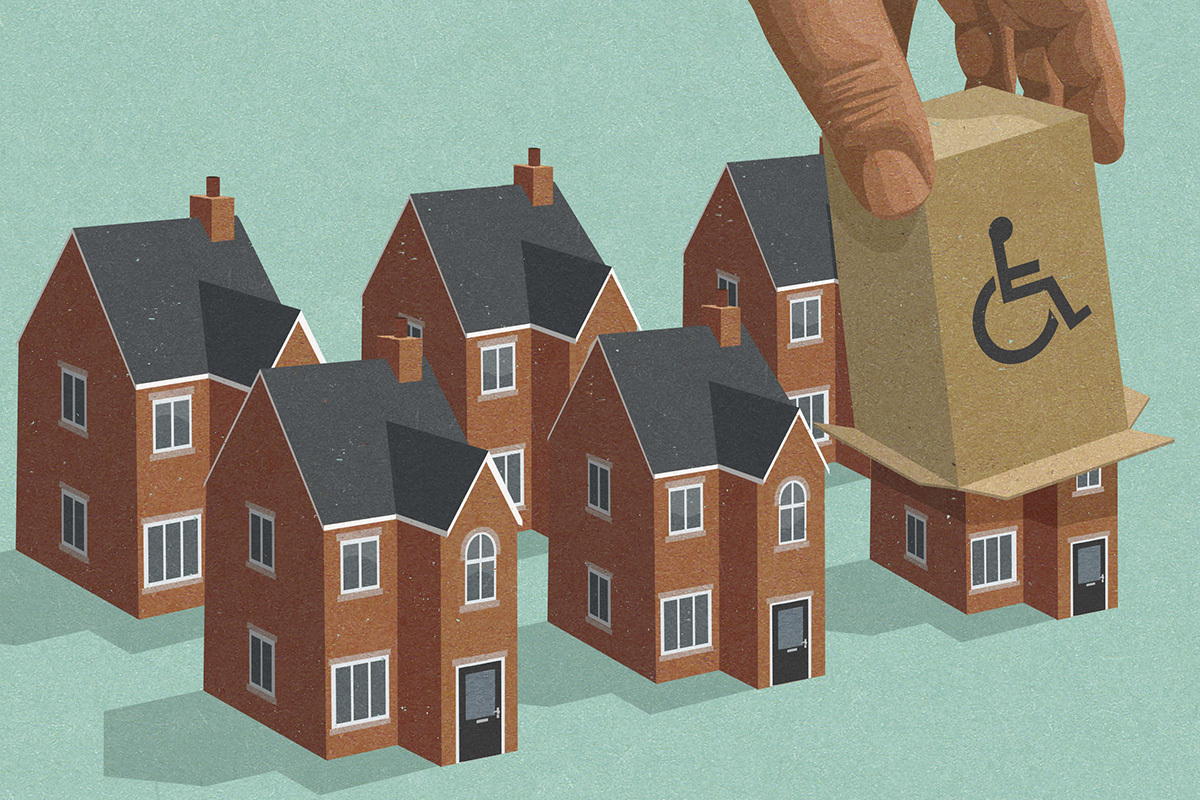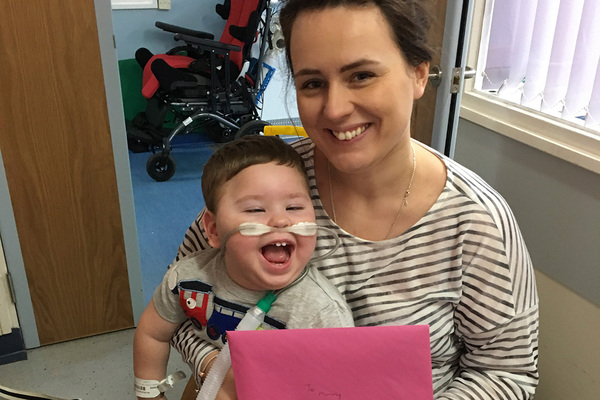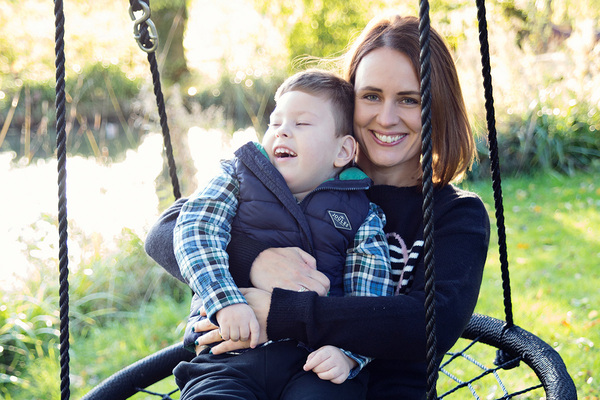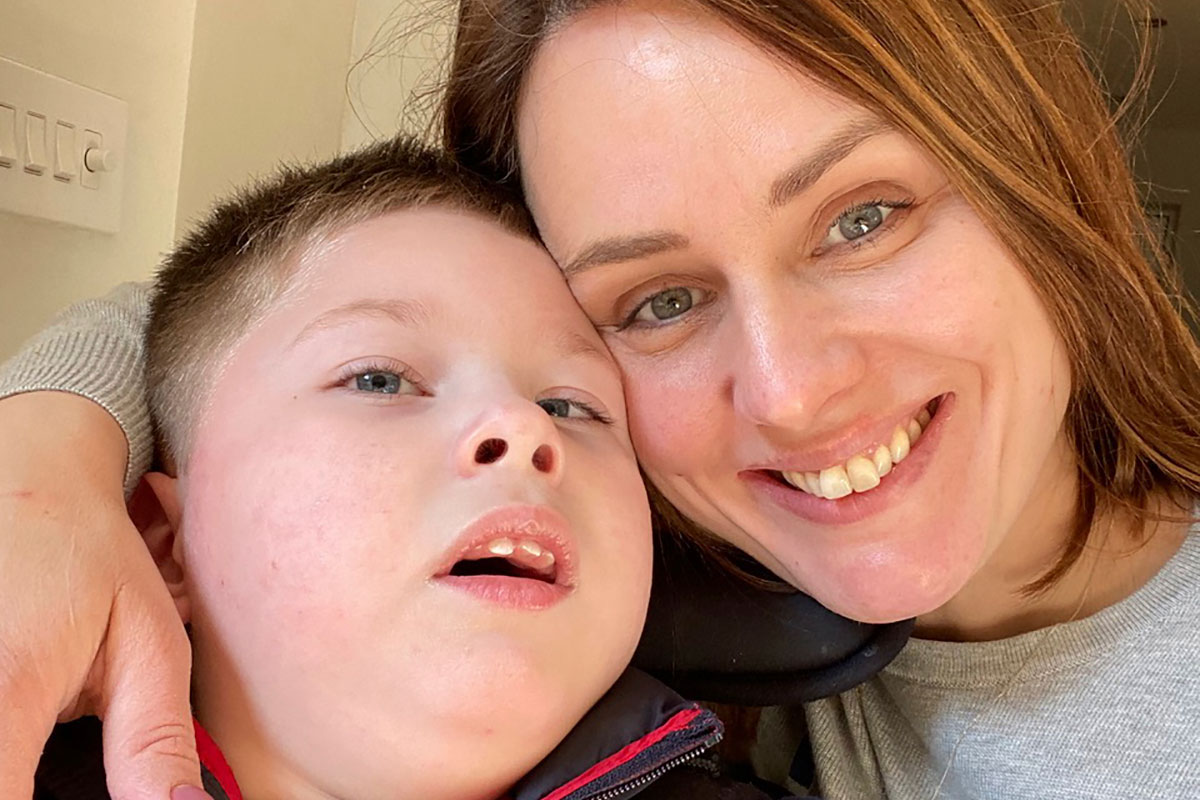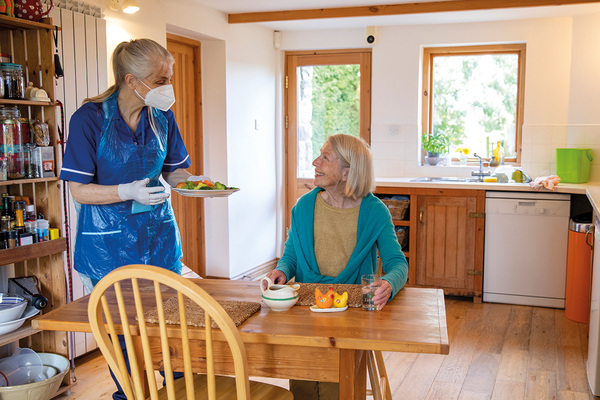You are viewing 1 of your 1 free articles
The housing association that’s doubling the proportion of accessible homes it builds
A year ago a new campaign – called Harry’s Pledge – was launched. It called on social landlords to build more accessible housing and improve their employment practices. Martin Hilditch meets one early adopter of the campaign to find out how it is looking to change the way it works as a result. Illustration by John Holcroft
One year ago, as parts of the UK started to emerge from the first lockdown, a new campaign launched that called on social landlords to step up to the plate for carers and their families.
With weekly applause still ringing out for paid and unpaid carers across the country, a group of campaigners wanted to make sure the housing sector did more than just make warm gestures.
The Harry’s Pledge campaign, named after six-year-old Harry Charlesworth, who has quadriplegic cerebral palsy, asked housing associations and councils to sign up to four specific commitments.
Harry’s mother, Hayley Charlesworth, this month reiterated her call for organisations to get involved, stating that their actions “could make a real difference to families like mine”.
These pledges asked organisations to think about everything from the accessibility of the homes they build, through to their employment practices and the accessibility of workspaces.
At Inside Housing, we promised to follow the campaign as it progressed, and start to look at what actions organisations were taking as a result of signing up. The aim was partly to look at the extent to which the campaign was leading to real change but, crucially, if it was, to demonstrate to other organisations how they too might approach things.
Today, we look at one of the campaign’s early backers – 5,000-home Greatwell Homes. It has taken a number of different actions since signing up to the pledges, including changing its approach to development to deliver on the call for landlords to “build more fully accessible homes”.
So, what has Greatwell done and what learning does it have to share with other landlords?
Greatwell started off by scrutinising its development programme. It was looking both at the proportion of accessible homes it requires on its land-led schemes and the extent to which it routinely considers accessibility in general needs stock and how more homes might be adapted.
Before looking at its response, it is worth pausing for a moment to consider why this is important. Specialist housing association Habinteg’s research has found that just 1.5% of homes outside of London are set to be suitable for wheelchair users based on current plans. A 2018 Equality and Human Rights Commission report found that “disabled people report a severe shortage of accessible houses across all tenures”, with social housing “particularly pressured, with long waiting lists”.
Frankly, disabled people and families with caring responsibilities face a struggle just finding somewhere that will meet their most basic housing needs.
Scrutinising its own performance against the Harry’s Pledge commitment, Greatwell Homes executives thought the organisation could do more. Its solution was to set much more ambitious minimum requirements for accessible housing on its land-led schemes.
Its board approved changes that shifted the parameters for land-led schemes to include a minimum of 10% fully accessible homes – up from the previously required 5%. It added that it “will look to exceed these minimum requirements wherever possible”.
Jo Savage, chief executive of Greatwell Homes, says that the change was “a direct result of Harry’s Pledge”.
Ms Savage says there were two main reasons for looking to change. One was simply doing more to meet existing need. But there are also important longer-term reasons to embrace change now, she suggests.
“We know we have got an ageing population and more people are likely to need accessible properties moving forward,” she states.
While there is an additional cost for development, Ms Savage says she expects this to be balanced out by other advantages, such as reducing turnover as people’s circumstances change because their properties will be adaptable to their needs.
Harry’s Pledge asks social landlords to sign up to the following four commitments
As employers: To be a carer-friendly employer, supporting people with caring responsibilities by making policies carer-friendly and ensuring they can work flexibly.
In our workspaces: To make offices and community spaces as accessible as possible.
In the homes we build: To build more fully accessible homes, routinely considering accessibility in general needs stock and how more homes can be adapted.
Training and career progression: To professionalise care further with clear qualifications/career paths and lobbying for changes in pay and rewards.
For Nic Bungay, director of strategy and external affairs at Habinteg, Greatwell’s change of approach is a vindication of the campaign, which his organisation also backs.
“The fact that Greatwell Homes is planning to build more accessible homes as a direct result of Harry’s Pledge is a testament to the hard work of everyone involved in the campaign,” he says. “It shows just what can be achieved when families like Hayley’s join forces with leaders in the housing sector, and most importantly it means that more families will have a chance of finding a home that truly meets their needs.”
The commitment to build more accessible homes is an absolutely “essential” part of the campaign, Mr Bungay adds.
“Too often carers and families with disabled children struggle to find places to live that work for them,” he states. “In England, 400,000 wheelchair users are living in homes that are neither accessible nor adapted. That’s why – together with the supporters of Harry’s Pledge – we want to see more wheelchair-accessible homes being built and for all new homes to be built to the accessible and adaptable standard as a minimum.”
There are other reasons why landlords should think about signing up to the pledge, Ms Savage thinks. Certainly, Greatwell’s eyes have been opened by some of the work it has done in relation to one of the campaign’s other commitments – to be a carer-friendly employer and support people with caring responsibilities by making policies carer-friendly and ensuring they can work flexibly.
As a result of this pledge, Greatwell surveyed staff to find out how many had unpaid care responsibilities outside of work (based on the NHS’s definition, it defined a carer as anyone who looks after a family member, partner or friend who needs help because of their “illness, frailty, disability, a mental health problem or an addiction and cannot cope without their support”).
The results were higher than the organisation expected – with 16% of staff reporting that they have caring responsibilities. Following on from this, Greatwell has asked carers what it can do to provide them with better support – more flexible working emerged as one of the top asks. The organisation is also working with Ms Charlesworth to carry out an audit of its HR policies “to make sure we are carer-friendly and we are not missing anything”, Ms Savage adds.
More social landlords should think about signing up to the pledge too, Ms Savage says. “I think it is something that is important for us, particularly as employers. This is about supporting really good quality staff.”
Obviously, it is still early days – and the true impact of the changes at Greatwell will become apparent in the months and years ahead. But it shows that the campaign is starting to result in action as well as discussion. And it throws down the gauntlet to social landlords that are not measuring their performance against the pledges at all.
The 49 organisations signed up to Harry’s Pledge
Ark Consultancy
Aspire Housing
Berneslai Homes
Bernicia Group
Beyond Housing
Broadland
Campbell Tickell
Carers UK
CIH
Citizen
Community Gateway Association
Cross Keys Homes
Eastlight Community Homes
EMH Group
Freebridge Community Housing
Futures Housing Group
Grand Union Housing Group
Greatwell Homes
Greenfields Community Housing
Habinteg
Harry’s Pals
Homes for Lambeth
Homes in Sedgemoor
Honeycomb Group
Housing 21
Housing Solutions
Inside Housing
Lincolnshire Rural Housing Association
Longhurst Group
MSV Housing
NHF
North Star Housing Group
Norwich Housing Society
Notting Hill Genesis
Optivo
Origin Housing
PA Housing
Peabody
PlaceShapers
Rosebery Housing Association
Saffron Housing Trust
Selwood Housing Group
Settle
Shepherds Bush Housing Association
SPACE Cheshire
The Hyde Group
Watford Community Housing
WHG
West Northamptonshire Council
Sign up for our care and support bulletin
Already have an account? Click here to manage your newsletters
